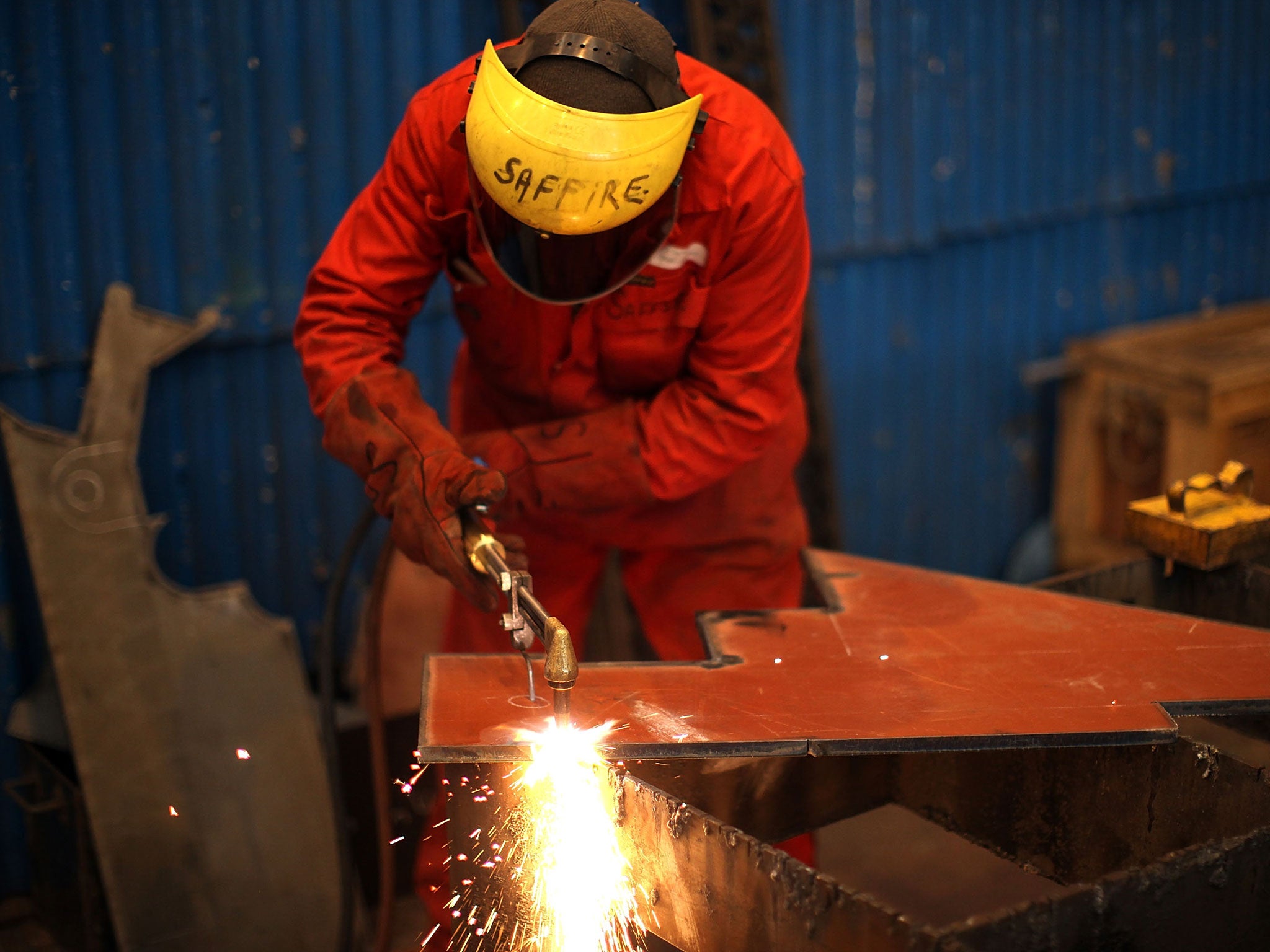Manufacturing is growing at its weakest rate in 14 months as firms feel the effects of flagging exports and slowing orders, according to the latest survey snapshot of the sector.
The Markit/Cips Purchasing Managers’ Index yesterday posted a reading of 52.5 for August. That was above the 50 mark which separates expansion from contraction, but down sharply from 55.4 in July and below analysts’ expectations of 55.
Growth in new export orders slowed to a five-month low with David Noble of Cips highlighting a “backdrop of market uncertainty and increasing geo-political tensions”.
Rob Dobson of Markit said that the sector’s weakness was most pronounced in European markets.
“It is noticeable that where export orders were reported to have risen, companies mainly linked this to demand from North America, Asia and the Middle East, as opposed to our European partners,” he said.
That downbeat message was echoed by the EEF manufacturer’s organisation yesterday, which downgraded its 2014 growth forecast from 3.4 per cent to 3.3 per cent, citing a slowdown in orders and output in the third quarter.
Separately, data from the Bank of England pointed to a continued slowdown in the UK mortgage market following the introduction of the Mortgage Market Review in April. The number of approvals for new home purchases in July declined to 66,559, down from 67,196 in June. Approvals are now running 13 per cent below January’s peak.
“The data is pointing to a slowing in the rate of economic growth, which plays into the hands of the more-dovish members of the Bank of England’s Monetary Policy Committee,” James Knightley of ING said. He added it was now looking more likely the Bank will impose its first interest rate rise next February, rather than this autumn.
“The UK’s expansion is in danger of losing its balance” said Martin Beck at the EY Item Club. “In early 2014, investment and exports offered solid support to GDP growth and reduced the economy’s reliance on consumer spending and the housing sector. But there is now concern that the UK is in danger of repeating the problems of the past.”
Net lending to firms inched up by £1.2bn in July, but small-business lending contracted again, declining by £400m in the month. Total net household borrowing rose by £3.4bn. Consumer credit – which includes credit-card debt – was up by £300m.
The eurozone’s main manufacturing survey index also hit a 13-month low in August, according to Markit, ahead of Thursday’s meeting of the European Central Bank board, where analysts expect it to prepare the ground for a monetary-stimulus programme.
Another manufacturing shock came from the Far East with the HSBC/Markit PMI survey for China dropping to 50.2 in August, only barely in positive territory. Analysts said the dip reflected both cooling foreign and domestic demand and could result in more policy easing from the authorities in Beijing.
“If we now start to see a serious challenge to growth, the pressure to do more will intensify,” said Louis Kuijs of RBS.
Subscribe to Independent Premium to bookmark this article
Want to bookmark your favourite articles and stories to read or reference later? Start your Independent Premium subscription today.


Join our commenting forum
Join thought-provoking conversations, follow other Independent readers and see their replies